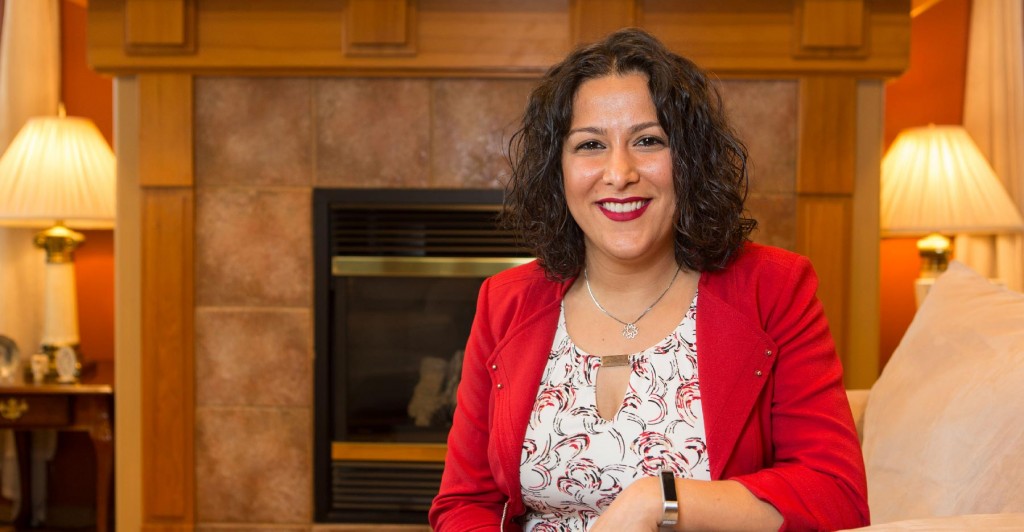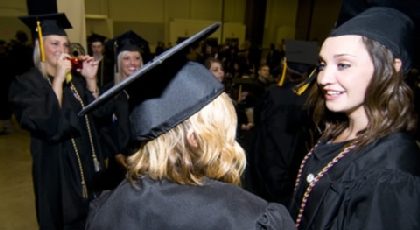Page 162 • (1,680 results in 0.148 seconds)
-

Symposium Feb. 26-29 | Various Times | Multiple Locations on Campus | More Information Hosted by the PLU Philosophy Department, focused on the relationship between food and the environment. 2016 Schnackenberg Lecture: Dr. Elizabeth Fenn on “Sakagawea’s Capture and the History of the West.” Thursday, March 3 | 7 p.m. | Philip A. Nordquist Lecture Hall | More Information The Forty-second Annual Walter C. Schnackenberg Memorial Lecture. Dr. Fenn will address the “prehistory” of Sakagawea’s journey with
-

After graduating from PLU in 2007, Schwartz held a collection of jobs including working in janitorial services, data entry at a nonprofit, and environmental remediation work on houses. In 2010, he entered Union Theological Seminary, in New York City. He thought he’d become a Lutheran pastor. But by the second week, he wasn’t sure he wanted to stay on. Faculty members encouraged him to stay, advocating for the philosophical and life experiences resulting from seminary school. In 2012, Schwartz was
-

fortunate she is to be in a position to use her education in service to others — just as her faith calls her to do. Upon arriving at PLU, she says she photographed everything, from lectures to extracurriculars. A photographer’s daughter, Sabet-Kazilas knew how important it was to capture her history as it unfolded. “I felt like I was the eyes of my relatives and friends who were deprived of this opportunity,” she said. “I wanted them to experience every second of what I was experiencing. That was a
-
didn’t do it. Whether or not you could have or not, that’ll bug you more than losing someone and you know you couldn’t have done anything. Always second guessing yourself will keep you up at night… Like we took too long cutting him out of the car, and he ended up bleeding out. So maybe we could have cut a different way or we just took too long. Those are the ones that bug me.” “We need to eat, sleep and do all of that. We never get to sleep normal. I think people tend to forget that we are people too
-

question, the people I met, and the opportunities all led me to PLU, my second home. My PLU experience: I was one of the lucky few who met their best friends in their orientation group. I found this solid group of friends to encourage me through college. I worked on campus at the concierge desk and the office of Humanities. I was a Resident Assistant in Harstad Hall, President of the Christian club on campus For the King, and helped facilitate a community dialogue project with ASPLU. I studied away in
-
provost shall each report their preliminary recommendations to the president and the faculty. The provost and the Faculty Joint Committee will request a second written proposal from academic units and sub-units identified in the preliminary recommendations for potential elimination or reduction. These second written proposals shall be submitted to the appropriate higher level academic unit(s) of which it is a part for review and for subsequent submission to the Faculty Joint Committee, the provost
-

communication studies (emphasis conflict management) with a minor in legal studies Why PLU? A wonderful initiative of cross-cultural exchange between PLU and the Government of Trinidad and Tobago, all spearheaded by the wonderful Professor Barbara Temple-Thurston, to whom I will be forever indebted. She has changed my world forever. My PLU experience: It has been a process of rediscovering myself by engaging “big enough questions” in and outside of the classroom. I have come closer to who I want me to be
-
member will contact you with a personalized recommendation on which course to take. The PLU Department of Languages & Literatures Our three programs–Chinese, French & Francophone Studies, and Hispanic & Latino Studies–offer introductory and intermediate-level courses in Chinese, French, and Spanish, as well upper division literature, film, and cultural studies courses. We also support the Native American & Indigenous Studies Program by offering introductory level courses in Southern Lushootseed. If
-
Sanditon specifically, does chart an overall rise in depicting and celebrating Afro-textured hair in cinematography after decades of discrimination in Hollywood and mainstream media. In fact, this Sanditon episode arrived not quite a month after the US House of Representatives passed the CROWN Act (Creating a Respectful and Open World for Natural Hair Act) for the second time. Although the Senate has yet to pass it, the move would finally make discrimination based on hairstyle and texture illegal at
-
; but it must be confessed that they were not of long continuance, for she soon recollected, in the first place, that she was without any excuse for staying at home; and, in the second, that it was a play she wanted very much to see. To the theatre accordingly they all went; no Tilneys appeared to plague or please her; she feared that, amongst the many perfections of the family, a fondness for plays was not to be ranked; but perhaps it was because they were habituated to the finer performances of
Do you have any feedback for us? If so, feel free to use our Feedback Form.


